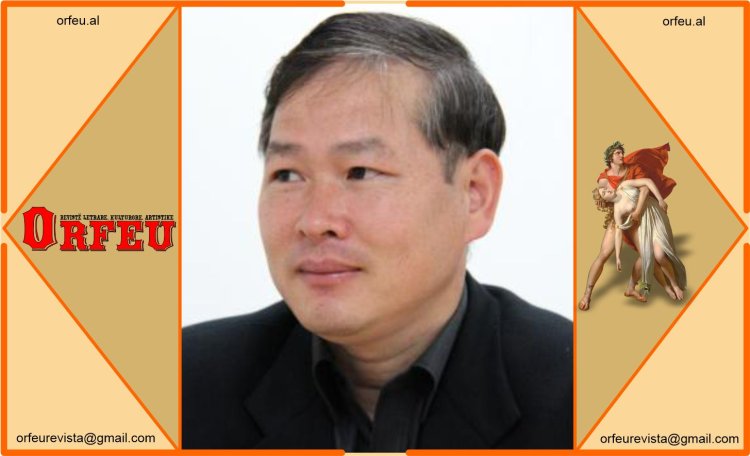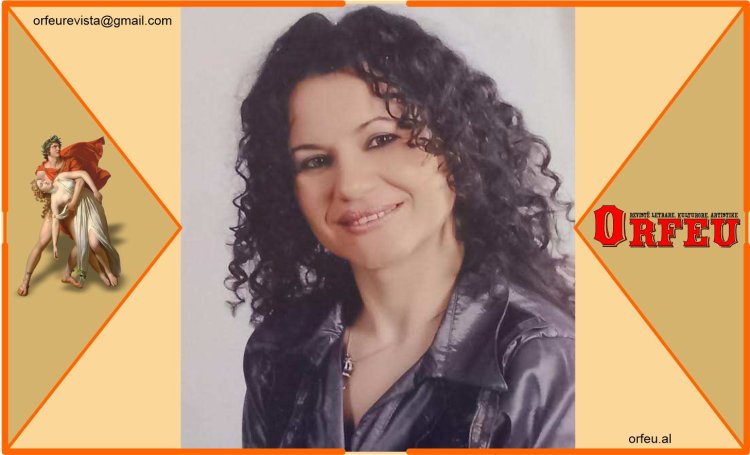POEM BY KANG BYEONG-CHEOL (SOUTH KOREA)
Dr. Kang Byeong-Cheol is a Korean author, poet, translator, and Doctor of Philosophy in Political Science. He was born in Jeju City, South Korea, in 1964. He began writing in 1993 and published his first short story, "Song of Shuba," at the age of twenty-nine. In 2005, he published a collection of short stories. He has won four literature awards and has published more than eight books. He was a member of the Writers in Prison Committee (WiPC) of PEN International from 2009 to 2014. He also served as the Founding President of the Korean Association of World Literature and as an editorial writer for JeminIlbo, a newspaper in Jeju City, Korea. Currently, he is a Vice President at the Korean Institute for Peace and Cooperation.
GOOD POEM
I heard
what a humble Korean novelist who received the Nobel Prize in Literature said.
“At this very moment, at this very hour, when victims of war are mourning in two places in the world,
I can't congratulate you on winning the Nobel Prize in Literature.”
I thought to myself,
what she said was one of the best poems I've ever heard.
THE LESSON OF HISTORY
The long history of the world can be condensed into a short tale.
Wars were waged, many people died, and property was burned, but little was gained.
I heard that on an island, when conflicts arose, they would place an axe in the middle of the negotiation table.
Whenever anger flared during talks, they would gaze at the sharp edge of the axe.
If the sun set while negotiating, they would continue their conversation by the fire.
Peace requires patience, much like a large shoebill that stares at its prey in the water for hours without moving.
Peace demands even more patience.
Conversations carried forward by patience sweep away the thick soot of night.
With the will for peace,
there will come a time for young lovers,
when the brilliance of diamonds is placed in the palm of a lover's hand.
역사의 교훈
긴 세월의 역사는 짧은 이야기로 압축될 수 있다:
전쟁이 벌어졌고, 많은 이들이 죽었으며, 재산이 불탔으나 얻은 것은 거의 없었다.
섬나라에서는 갈등이 생기면 협상 테이블 가운데 도끼를 놓았다고 들었다.
협상 중 화가 치밀 때면 그들은 도끼의 날카로운 날을 응시하곤 했다.
해가 지는 와중에도 협상은 모닥불을 피워가며 계속되었다.
평화는 큰 새 슈빌이 물속 먹이를 몇 시간 동안 지켜보듯 인내를 필요로 한다.
평화는 더 많은 인내를 요구한다.
인내로 이어진 대화는 밤의 짙은 그을음을 걷어낸다.
평화를 향한 의지와 함께,
연인의 손바닥 위에서
다이아몬드의 광채가 빛나는 날이 올 것이다.
GAZA'S WHITE DOVE
A Palestinian boy returned home after the bombing.
He saw pigeons, chickens, and canaries lying dead in his almost destroyed house.
Dead wings, wings scattered in the yard
He finds a white dove that survived the bombing.
Holding the white dove in his arms amid the rubble of Gaza, the boy says,
"Stop the war, end the war, let the pigeons walk the streets of Gaza.
Let the pigeons walk leisurely through the streets."
People shout together. Like an echo, the cry spreads far and wide:
“Let the pigeons walk leisurely among the people in the streets of Gaza.”
가자의 흰 비둘기
폭격이 끝난 후에 팔레스타인 소년이 집으로 돌아왔다.
그는 거의 부서진 집에서 비둘기, 닭, 카나리아들이 죽어 있는 것을 보았다.
마당에 흩어진 죽은 날개들, 날개들
그는 포격에서 살아남은 흰 비둘기 하나를 발견하였다.
가자 지구의 잔해 속에서 흰 비둘기를 품에 안고 소년은 말한다
전쟁을 멈추고, 전쟁을 끝내고 비둘기들이 가자 거리를 거닐게 해 주세요.
비둘기들이 한가하게 거리를 걷게 해주세요.
사람들이 함께 외친다. 메아리처럼 외침은 널리 퍼진다.
“가자 거리에서 비둘기가 한가로이 사람들 사이를 거닐게 하라”
DO NOT TEACH REVENGE
Do not teach hatred to the young.
Teach mercy and tolerance to the young.
A wise man said,
"There is someone who thinks he has been harmed by others.
There will be no peace for him."
Roses bloom with bright sunlight and clear water.
Even though they have small thorns, the lovely and red flowers are loved.
복수를 가르치지 마라
젊은 사람에게 미움을 가르치지 마라
어린 사람에게 자비와 관용을 가르쳐라
한 현인이 말했네
누가 자신을 해쳤다고 생각하는 이가 있다.
그런 사람에게 평화는 없으리라고
장미는 찬란한 햇빛과 맑은 물로 꽃을 피워낸다
작은 가시들이 있어도 탐스럽고 붉은 꽃은 사랑을 받는다
ONE'S INNER PEACE
Once, a wise man said,
“Achieve peace in your heart
Achieve peace in your family
Achieve peace in your country
World peace will naturally follow.
As your shadow follows you”
한 사람의 내면 평화
옛날에 한 현인이 말하였네
마음속의 평화를 이루라
가족의 평화를 이루고
나라의 평화를 이루어라
세계의 평화는 자연히 따라올 것이다.
그림자가 그대의 뒤를 따르듯이
Prepared Angela Kosta Executive Director of MIRIADE Magazine, Academic, journalist, writer, poet, essayist, literary critic, editor, translator, promoter



